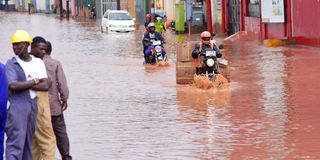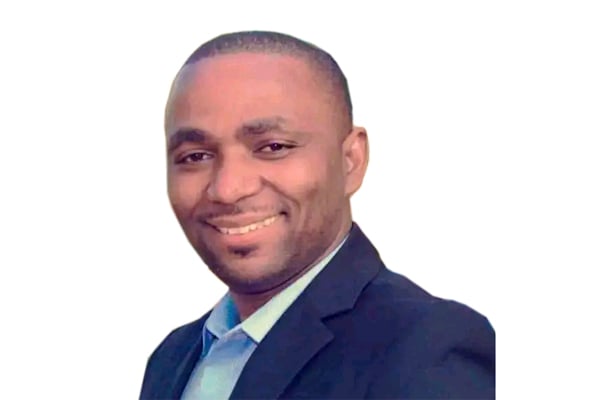COP27: A view from Africa

Motorists wade through a flooded section of the road on 7th street in Kampala on September 12, 2022. Communities across Africa are being affected as climate change exacerbates food insecurity and water scarcity. PHOTO | FRANK BAGUMA
What you need to know:
- Amin Mawji argues that as Africa’s understanding of climate change threats improves, more funding must be dedicated to help developing countries adapt to the global challenge.
Around 90 heads of state are expected to attend the 27th UN Climate Change Conference of Parties (COP27) to be held in Egypt next week. This is a timely moment to reflect on why this conference is particularly important for the continent that is hosting it this year.
Africa contributes less than five percent of global greenhouse gas emissions. Yet, communities across the continent are among the hardest hit as climate change exacerbates food insecurity, water scarcity and extreme heat. For example, the last four consecutive rainy seasons in the Horn of Africa have failed. This has left millions of people suffering from the worst drought in forty years.
Elsewhere across the continent, such as in South Africa and Uganda, we have witnessed the worst floods and landslides in living memory, destroying homes and livelihoods. Taken together with the threats facing the continent’s flora and fauna, Africa is now the world’s most climate-vulnerable continent. Left unaddressed, these vulnerabilities will inevitably lead to more displacement and migration.
In July, Uganda hosted a three-day regional inter-ministerial conference on migration, environment and climate change. This meeting brought together heads of state and ministers from the East and Horn of Africa to discuss some of the impacts of environmental degradation.
Justification
As our understanding of these threats improves, there is wider recognition that more funding must be dedicated to help developing countries adapt to climate change.
Developed countries have collectively acknowledged that they should take the lead in mobilising the funds needed to address the problem. This upholds the principle of the “common but differentiated responsibility” (CBDR) under the United Nations Framework Convention on Climate Change (UNFCCC). The principle recognises that all states are responsible - but not equally responsible - for addressing global environmental destruction.
Annual adaptation costs in developing countries are estimated at $70 billion, rising to $140 - $300 billion by 2030.
At a UN climate summit in 2009, all developed countries agreed to provide $100 billion in annual finance by 2020 through to 2025, to help developing nations tackle climate change. This pledge has not been met fully, and on current estimates is likely to continue to fall short in the coming years.
As we look ahead to COP27, what outcomes should we seek for Africa? Amid discussions about Africa’s unexplored gas fields, it will be important to secure clear commitments to support Africa’s roadmaps to climate adaptation. The continent has a bold Africa-led adaptation plan, the African Adaptation Acceleration Programme (AAAP), which needs to be sufficiently supported and resourced.
At the same time, the continent needs support to implement its mitigation programmes. Development partners can promote green economic development. They can help the continent harness its immense potential to access solar power and enable the low-carbon and circular economy. In any event, it is important to recognise that climate finance is now an urgent priority for Africa. Developed countries need to meet their obligations to support wider implementation of the climate finance delivery plan.
For communities across Africa, climate change is not just a distant threat. The continent has many vulnerabilities and the risk to human life, livelihoods and the environment is very real. This is why the COP27 conference should serve as a call for action, not just for the continent but for our planet. World leaders convening in Sharm El- Sheik next week need not ask for whom the bells toll. They toll for thee.
Amin Mawji OBE is the Diplomatic Representative of the Aga Khan Development Network based in Kampala




